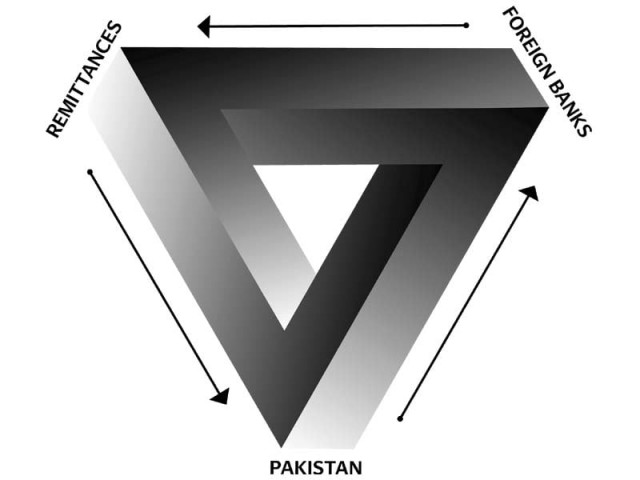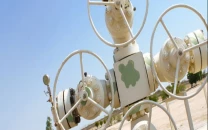Musical chairs: ‘Constant reshuffling in finance ministry hurting economy’
Former adviser sees ‘mysterious’ rise in remittances, fears income from illegal sources making into remittances.

The State Bank of Pakistan needs to investigate the “mysterious rise in remittances” as there are possibilities that money earned through illegal means is being re-routed into the country under the garb of remittances, said renowned economist Dr Ashfaque Hasan Khan.
In a lecture on “Pakistan’s economic challenges — a way forward”, organised by the Institute of Strategic Studies — a public sector think tank — Dr Khan who is a former adviser to the government of Pakistan also emphasised on installing a credible economic team to drive the country out of the economic mess. He said the central bank should investigate whether “someone is re-routing money earned through illegal means”. Dr Khan questioned the fact that if the remittances recorded in the Philippines - a country with similar demographics to Pakistan, grew by three per cent how could Pakistan’s grow 26 per cent last year. Money earned through corruption and deposited abroad through illegal channels is being brought back tax free, he added.
Dr Khan also emphasised on developing a stable economic team as according to him replacing four finance ministers, four Governors of the State Bank, five finance secretaries, four chairmen Federal Board of Revenue and four deputy chairmen planning commission in such a short span of time was unique in the world. “How can the economy be stable when the economic team is not stable?”
Dr Khan said having a current account surplus of $542 million last year is a matter of concern because it is a result of massive decline in investment that is at a 40-year low. He said that this trend will have drastic consequences as today’s investment rate of 13.2 per cent will mean a growth rate of 2 to 2.5 per cent for another three to four years, he added, in order to create at least three million new jobs every year Pakistan needs a growth rate of 7 to 8 per cent.
He said there is also nothing to cheer about $25 billion historical exports in the last financial year as Pakistan got a windfall gain of additional $4 billion due to spurt in commodity prices in the world market. The prices of cotton and rice have started coming down and the economic managers will have to consider this.
He said declining foreign direct investment was a big challenge that has come down to $2 billion from peak of $8.5 billion in 2006-07.
“Foreigners are losing confidence in Pakistan’s economy and our economic mangers as they are not communicating with the rest of the world”, said Dr Khan.
He said the 7th National Finance Commission Award was a political award having no economic foundation. “The government has sowed the seed of perpetual mismanagement of the economy”.
“Economy is not impacting the vote banks of political parties so far but the day this happens it will be on every government’s radar screen, said Director General ISS, Ambassador retired Ashraf Jehangir Qazi.
Published in The Express Tribune, July 21st, 2011.



















COMMENTS
Comments are moderated and generally will be posted if they are on-topic and not abusive.
For more information, please see our Comments FAQ